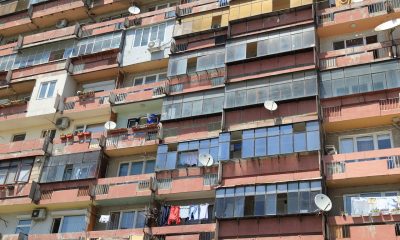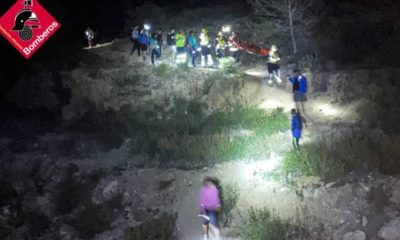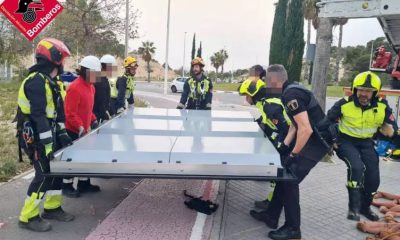Costa Blanca
The renovation of the Torrevieja ice factory will cost 6.6 million euros
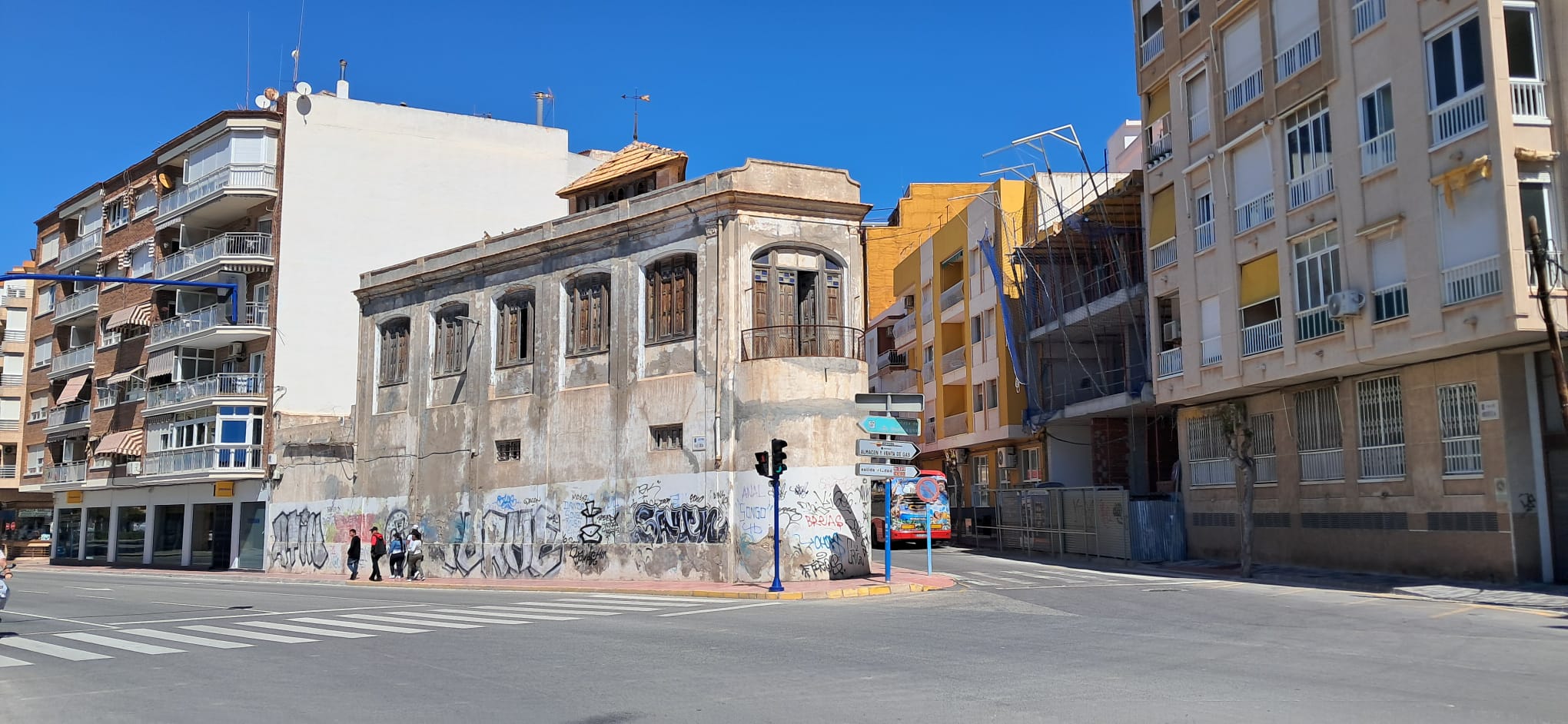
The local government board of the Torrevieja City Council has approved the project to carry out the rehabilitation of the protected building of the Ice Factory on Calle Orihuela with Faleria (formerly Acarretos). The project will also include the adjacent plot of the former Gloria Cinema.
The General Urban Development Plan protects the Ice Factory building, which dates to the late 1920s. The municipal treasuries spent 900,000 euros to acquire the plot, which spans approximately 300 square meters. The initial price was 800,000 euros, but they later increased it by 100,000 euros.
Another 300 square metres of the adjacent property, which was recently converted into a parking lot for municipal employees, is situated between Orihuela and Salero streets. Previously, the Gloria cinema used it as a summer cinema. The City Council acquired it for €840,000 in early 2023.
The buildable area of 2,273 square metres is distributed over the ground floor and four floors in the unified design of both structures, which must at least match the appearance of the façade and roof of the current ice factory.
Invitation to tender
Federico Alarcón, the government spokesman, announced on Thursday that the works are anticipated to be awarded “in one or two weeks” after being placed out to tender. The final project’s scope and intended use have not been disclosed by the Popular Party governing team.
The mayor, Eduardo Dolón, has been advocating for the Ice Factory to serve as the new tourist office. This is due to the municipal plan to demolish the old Miramar building, which currently houses the tourist office, to utilise the basement as a parking lot and the upper deck as a viewing platform that provides a view of the bay, including the sport boat docks and the Eras de la Sal.
Redevelopment of the Salt Eras
The Ice Factory project is a component of a broader redevelopment and rehabilitation initiative that encompasses the entire region encircling the Eras de la Sal, the industrial heritage site that established the city and its salt mines. Initially revealed in February 2021, the initiative remains unfinished. In various phases, the project is currently only in the process of draughting and conducting archaeological investigations.
The project encompasses the restoration of the salt mines’ administrative structure, the original walls and paving of the site, which date back to the mid-18th century, and the trestle that was reconstructed in the late 1990s. The proposal also encompasses the construction of the Sea and Salt Museum on the slope of the Upper Era, as well as the construction of an open-air auditorium on the surface that is currently occupied by the Marina Internacional dry dock.
Among other projects, the initiative is complemented by the redevelopment of Faleria Avenue, the current Maestro Velero promenade, and a portion of the Vista Alegre promenade, as well as a verdant area over the future museum.
Remains of archaeological significance
The City Council commissioned an archaeological investigation of the subsoil of the Ice Factory in the event that it uncovered any intriguing remains, such as the fort and watchtower that gave the city its name. Arpa Patrimonio, the corporation that the municipality directly commissioned for these excavations under a minor contract, reported the discovery of no significant remains. The team of specialists in the region did, however, identify that the building’s distinctive wooden roof is in a state of disrepair and has collapsed in certain regions.
Thirty-one million euros
All of these projects, which are collectively valued at €31 million, are currently on pause due to the necessity of obtaining a public domain concession from the Generalitat Valenciana (Generalitat Valenciana), the administration responsible for the port’s public domain. The City Council’s formal request for this concession has made it accessible to the public. This is an exception to the Ice Factory, which is not under the jurisdiction of the Consell.
Therefore, they are commencing immediately. Because the Municipal Theatre has hosted the International Habanera and Polyphony Competition for the past three years, the municipality prioritised the construction of the auditorium in addition to renovating the ice factory. The theatre will also host this year’s competition at the end of July.
Additionally, the City Council anticipates receiving a portion of the ERDF funds, although funding is only partially guaranteed.
Discover more from Costa Blanca Daily
Subscribe to get the latest posts sent to your email.
Costa Blanca
Man who held and beat his ex-partner in Torrevieja to be tried on Thursday
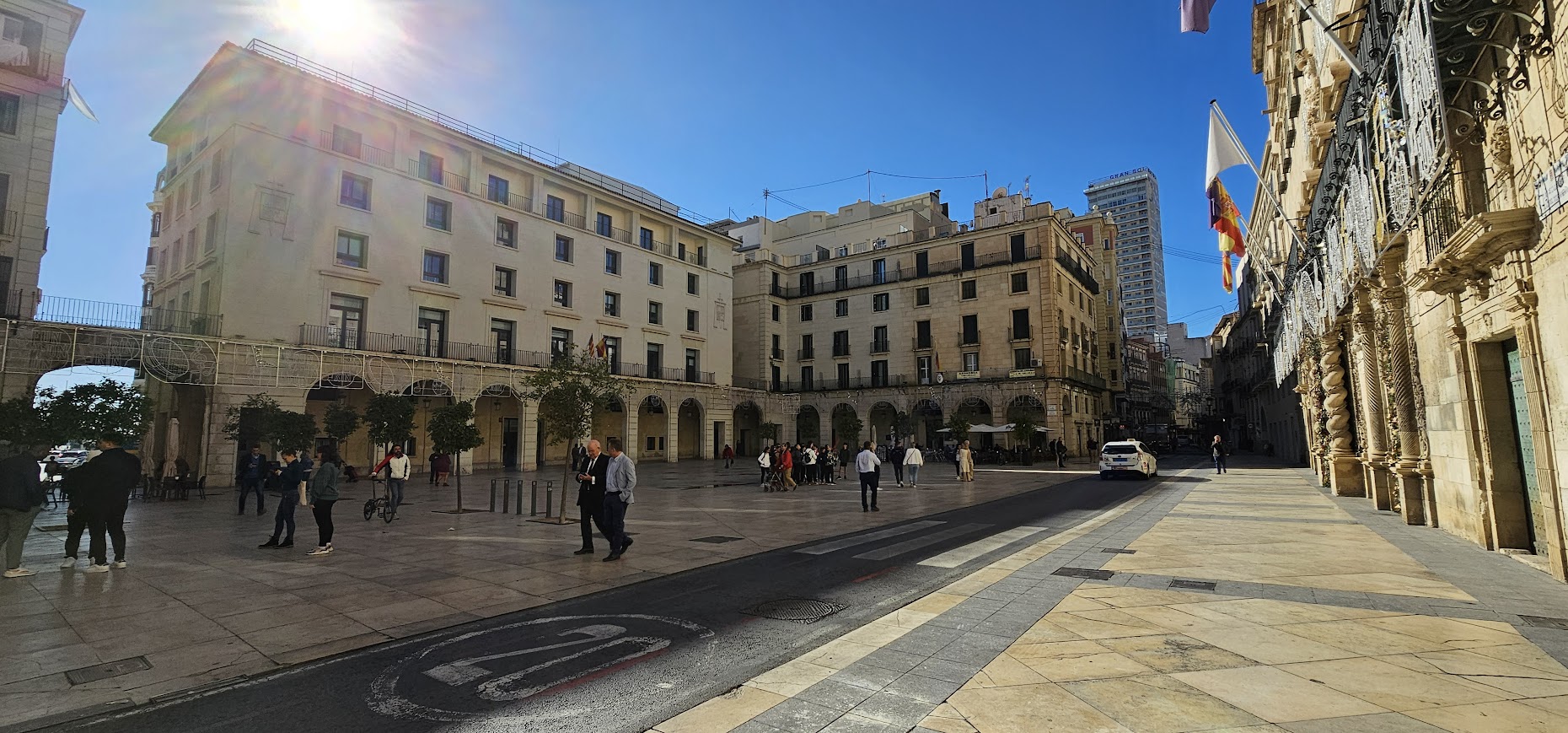
The man who is accused of restraining his ex-partner in a Torrevieja residence for hours and striking her on the head and stomach will be put on trial on Thursday.
At approximately 11:00 p.m. on November 1st, 2023, the incident happened. After a two-year relationship, the defendant accosted his ex-partner on the street. He secured a cloth sack over her head, covered her mouth, and coerced her into a vehicle operated by an unidentified individual. The vehicle was to transport her to a residence in a nearby housing development.
Upon his arrival, he confined her to one of the house’s rooms and spent the night repeatedly entering and exiting the room in an attempt to physically assault her. The woman was able to escape from the residence at 2:00 p.m. the following day.
The Prosecutor’s Office is requesting an eight-year prison sentence for the offences of unlawful detention, assault, and threats. The trial is scheduled to commence at 9:30 a.m. in Section 1 of the Alicante Provincial Court on Thursday, May 8th.
Discover more from Costa Blanca Daily
Subscribe to get the latest posts sent to your email.
Costa Blanca
Three-year-old boy injured after being attacked by a dog in Orihuela
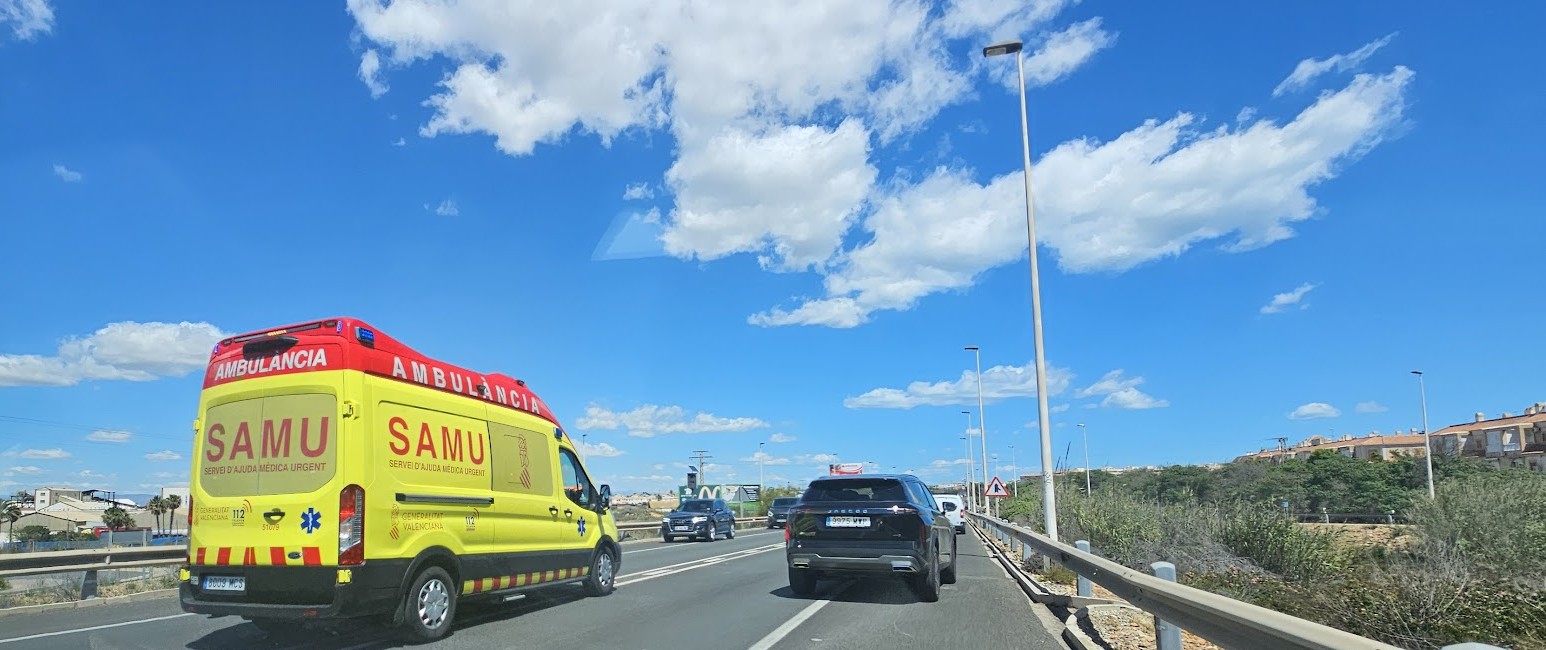
In the Orihuela district of La Murada, a three-year-old child sustained multiple facial and back injuries as a result of a dog attack.
The incident occurred at the intersection of Calle Antonio Balaguer and Camino de los Almendros slightly after 2 p.m. on Saturday, May 3rd.
The child and his mother had gone to their neighbour’s house across the street to eat and spend the afternoon when the dog emerged from the garage and “hooked” the child, according to witnesses.
The family members’ prompt action in separating the large, mixed-breed dog prevented “a tragedy,” as per the same sources.
It appears that the neighbours have encountered comparable hazardous circumstances in the past; however, they have not culminated in an attack, as they have in this instance, despite the numerous warnings they have issued to the proprietor.
The site was attended to by the local police and Guardia Civil. The SAMU (Safety and Emergency Medical Service) was dispatched by the Emergency Information and Coordination Centre, which received the call at 2:38 p.m. A Basic Life Support unit was mobilised and conveyed the child to the Orihuela health centre upon the medical team’s arrival, as the child appeared to have sustained some scratches.
Discover more from Costa Blanca Daily
Subscribe to get the latest posts sent to your email.
Costa Blanca
Tourist rentals are prohibited in all residential communities

Until recently, any owner was able to convert their property into a tourist flat by obtaining the corresponding regional or local tourist licence. However, this has been altered: Since April 3rd, 2025, tourist rentals are automatically prohibited in all residential communities. Only a specific agreement at a meeting can authorise it.
This is a significant reform of the Horizontal Property Law, as it now grants residents’ associations legal control over this activity. The new Article 17.12, which has entirely altered the previous legal framework regarding tourist apartments, is the critical factor.
What is the new legislation regarding visitor apartments?
The following is established by the new Article 17.12 of the Horizontal Property Law:
“The express agreement that authorises, restricts, conditions, or prohibits the activity (…) will necessitate the affirmative vote of three-fifths of the total number of owners, who, in turn, represent three-fifths of the participation quotas.”
Therefore, without the community’s prior consent, no proprietor will be able to rent out their property for tourist purposes. Only the explicit consent of a qualified majority can lift the comprehensive prohibition.
The primary modification is that the agreement no longer prohibits it, but now permits it.
Tourist rentals were permissible prior to April 3rd, 2025, unless the community agreed to prohibit them at a meeting.
Tourist rentals are prohibited as of April 3, 2025, unless the community explicitly authorises them with the affirmative vote of three-fifths of the total number of proprietors and members. In other words, the burden of proof is reversed: authorisation is now necessary rather than prohibition.
What if there are already tourist rentals in flats?
The reform does not have a retroactive effect. This implies that proprietors who were already legitimately conducting their enterprises prior to April 3, 2025, and who were registered under tourism regulations, are permitted to continue doing so. This clause is specified in the second supplementary provision of the law.
Nevertheless, the community may also consent to a surcharge of up to 20% on common expenditures for those homes, as a form of compensation for the increased use of common areas, with a 3/5 majority.
What is the function of the bylaws of a neighbourhood community?
The constitutive document or the community statutes are indispensable. This prohibition is fully enforceable and remains in place if they already contain a clause that expressly prohibits tourist use or any commercial activity, as confirmed by the Supreme Court in rulings of 2023 and 2024.
The community can also stop the activity immediately if the statutes change the usage regime, even without new ballots.
What happens if a landowner disregards the regulations and rents out their property without authorisation?
In that event, the community is entitled to request that the activity be ceased. The president, any proprietor, or even an affected occupant may initiate the procedure. If the offender persists, the community may pursue legal action.
Is there any additional requirement for renting a property for tourist purposes, in addition to community approval?
The owner is still required to acquire the appropriate tourist licence in accordance with regional or municipal regulations, although the community has authorised the activity. This administrative permit is essential, but it is insufficient to initiate the activity; community authorisation is required.
Discover more from Costa Blanca Daily
Subscribe to get the latest posts sent to your email.
-

 Costa Blanca2 weeks ago
Costa Blanca2 weeks agoCatral Local Police car ends up upside down after accident
-
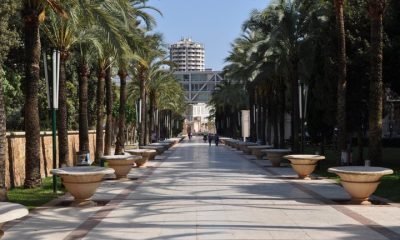
 Costa Blanca1 week ago
Costa Blanca1 week agoBenidorm studies the temperature of its streets to understand “heat island effect”
-

 News2 weeks ago
News2 weeks agoThe Generalitat presents the road map for the widening of the CV-95 between Orihuela and Torrevieja
-
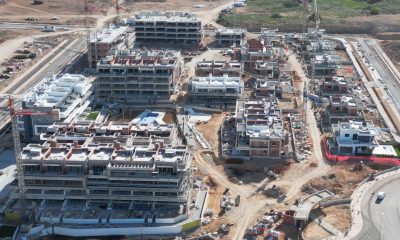
 Costa Blanca2 weeks ago
Costa Blanca2 weeks ago44% of homes in Alicante province were purchased by foreigners
-

 Costa Blanca1 week ago
Costa Blanca1 week ago‘Cartagena’, the new electric Navy ship
-

 Costa Blanca1 week ago
Costa Blanca1 week agoFour minors arrested for smuggling drugs on a school trip
-

 Costa Blanca1 week ago
Costa Blanca1 week agoAlicante port gets an electric boat for cleaning the water surface
-
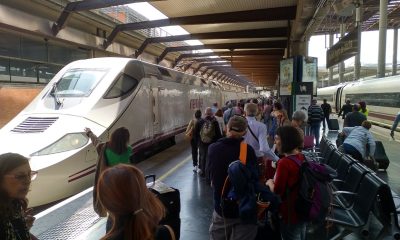
 Costa Blanca1 week ago
Costa Blanca1 week agoCompetition on Spain’s railways is driving down prices





